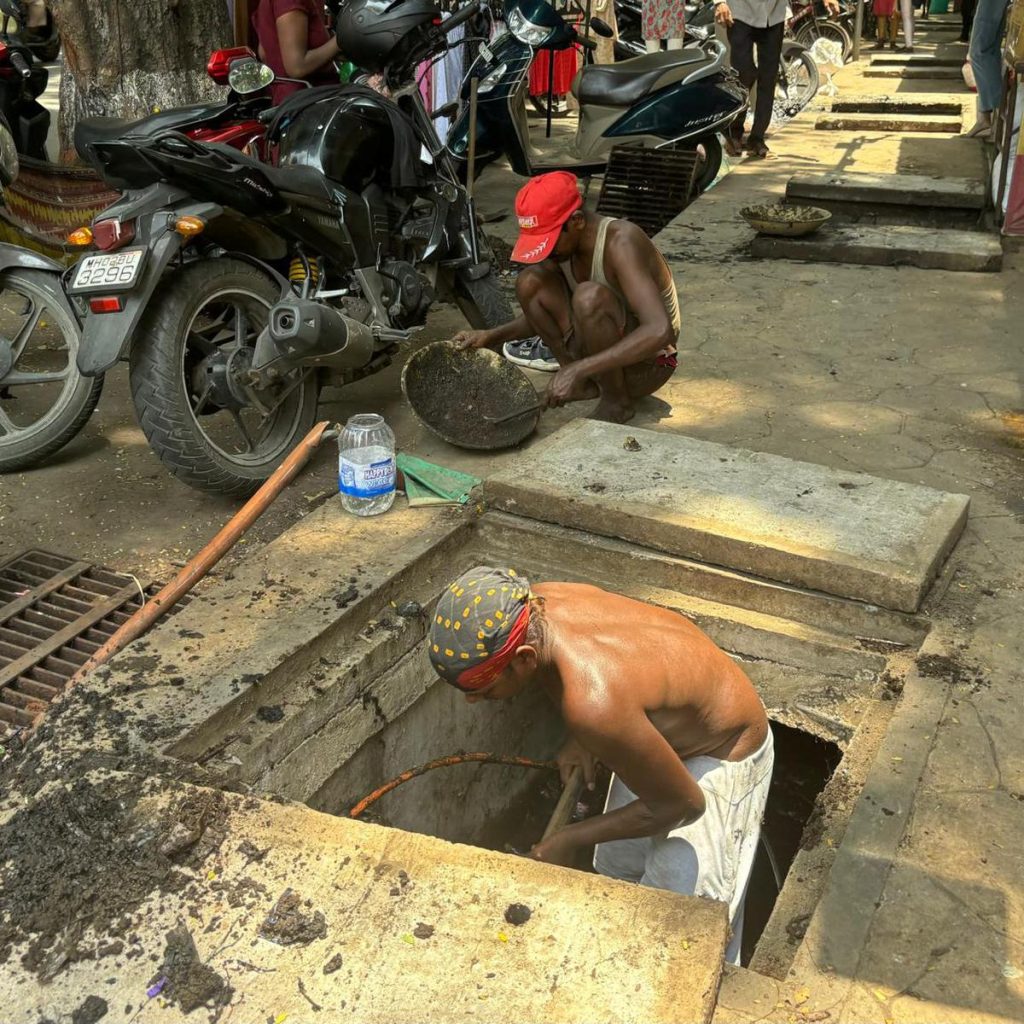Context:
The Ministry of Social Justice and Empowerment is currently conducting the profiling of sewer and septic tank workers (SSWs) under its NAMASTE program.
Key Highlights:
- This new attempt was made to count people who are currently cleaning sewers and septic tanks in India.
- Information was collected from over 3,000 local government bodies across 29 States and Union Territories.
- In the past year, 3,326 urban local bodies (ULBs) have started profiling sanitation workers (SSWs) and have identified around 38,000 SSWs.
- 91.9% of the 38,000 workers identified belong to marginalized communities [Scheduled Caste (SC), Scheduled Tribe (ST), or Other Backward Class (OBC)].
- 283 ULBs reported having zero SSWs.
- The Ministry of Housing and Urban Affairs estimates that there are about 100 core sanitation workers for every 500,000 people in urban areas.
- Between 2019 and 2023, at least 377 sanitation workers died while cleaning sewers and septic tanks, as per government data shared in Parliament.
About the NAMASTE Scheme
- The National Action for Mechanised Sanitation Ecosystem (NAMASTE) Scheme aims to eliminate manual cleaning of sewers and septic tanks, focusing on the safety and dignity of sanitation workers.
- In 2023-24, this scheme was brought in to replace the Self-Employment Scheme for Rehabilitation of Manual Scavengers (SRMS).
- It is a joint initiative by the Ministry of Social Justice and Empowerment and the Ministry of Housing and Urban Affairs.
- The scheme will run for three years (FY 2023-24 to FY 2025-26) with a budget of ₹349.73 crores.
- Target: The scheme aims to profile over 100,000 SSWs across 4,800 urban local bodies in India and Provide safety training and equipment, along with capital subsidies, to transform sewer and septic tank workers into sanitation entrepreneurs.
Key Components of Scheme:
- Health Insurance under PM-JAY.
- Occupational Safety Training.
- Awareness Campaign
- Capital Subsidies: Up to ₹5 lakh for purchasing sanitation-related vehicles and equipment.
- Providing Safety Devices (Emergency Response Sanitation Units (ERSUs)).”
Profiling Initiatives taken by the State Governments:
- Twelve States and Union Territories (UTs), including Kerala, Rajasthan, and Jammu and Kashmir, have finished profiling sanitation workers (SSWs).
- Profiling is still in progress in 17 States, such as Andhra Pradesh, Bihar, Gujarat, Uttar Pradesh, Madhya Pradesh, and Maharashtra.
- States like Chhattisgarh, Meghalaya, and West Bengal have not begun the profiling process yet.
- States like Kerala and Karnataka are organizing information and communication campaigns at special camps to profile workers.
- In Andhra Pradesh, ULBs are visiting the homes and workplaces of workers for profiling, with about 30% of profiling done this way.
- By the end of the 2023-24 financial year, 31,999 SSWs had been validated.
Financial Support by the Government
- By the end of the 2023-24 financial year, Capital subsidies of ₹2.26 crore were provided to 191 beneficiaries and their dependents for self-employment projects.
- 413 sanitation workers and their dependents received ₹10.6 crore in capital subsidies for sanitation-related projects.

